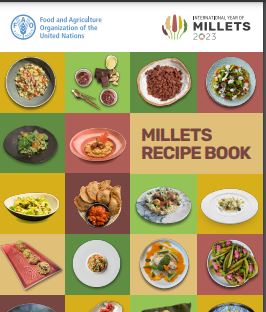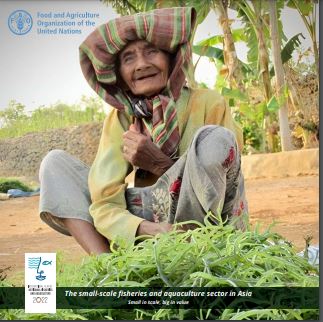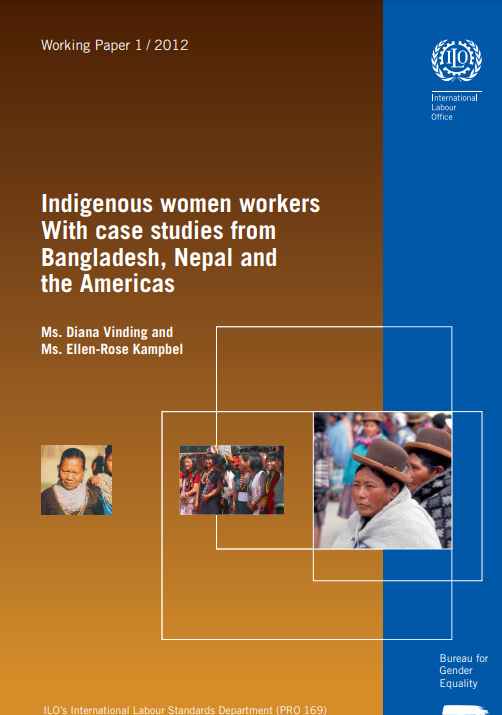Knowledge Hub
Gender, Climate Change, and Resilient Food Systems
2017
Author(s): Nkengla-Asi L
This study aims to understand how men and women in Cameroon’s Southwest region differ in their vulnerability to and their coping strategies for climate change impacts.Understanding such gender differences could facilitate the development of gender-sensitive policies and programs and could help improve sustainable and more inclusive adaptation strategies.
The Future of Food Security, Environments and Livelihoods in Western Africa
2016
Author(s): Palazzo A, Rutting L, Zougmoré R, Vervoort J M
This working paper examines the development of regional socioeconomic scenarios for West Africa’s development, agriculture, food security and climate impacts. We present four globally consistent regional scenarios framed and outlined by regional experts who crafted narratives and determined key drivers of change.

Millets, often referred to as “forgotten grains”, are a diverse group of small-seeded grasses that have been cultivated for thousands of years across different cultures and continents. Many varieties of millets, as whole grains, can be an important part of healthy diets – offering various nutrients including essential minerals, vitamins and dietary fibre. How they are prepared, however, is a critical consideration to maintain and enhance their nutritional value. The recipes in this book have been selected with nutrition in mind.
Technology Adoption and Risk Exposure Among Smallholder Farmers
2016
Author(s): Mukasa AN
In most developing countries, increasing agricultural productivity is the overarching goal of policy makers and their development partners. Especially for sub-Saharan African (SSA) countries where half of the population lives in poverty, technological changes in the agricultural sector are often considered as one of the key pathways for fighting food insecurity, spurring economic growth, overcoming extreme poverty, and improving populations’ wellbeing.

The small-scale fisheries and aquaculture sector in Asia Small in scale, big in value
2022
Author(s): FAO, INFOFISH
The United Nations General Assembly has declared 2022 the International Year of Artisanal Fisheries and Aquaculture (IYAFA 2022). FAO is the agency leading the advocacy activities for the Year, in collaboration with other entities of the United Nations. Celebrating IYAFA 2022 gives important recognition to the millions of small-scale fishers, fish farmers and fish workers who provide healthy and nutritious food to billions of people and contribute to achieving Zero Hunger.

Indigenous Women Workers – With Case Studies from Bangladesh, Nepal and the Americas
2012
Author(s): Vinding D , Kampbel ER
Indigenous women have been active at the national and international levels to promote the rights of their peoples and draw attention to the specific issues and challenges that they face as indigenous women. They actively contributed to negotiations leading to the establishment of the Permanent Forum on Indigenous Issues in 1993, and subsequently to the adoption of the UN Declaration on the Rights of Indigenous Peoples in September 2007. They also ensured that a resolution on indigenous women was adopted at the 49th Session of the Commission of the Status of the Women (CSW) in March, 2005.
The Rights To Social Protection And Adequate Food
2016
Author(s): Morlachetti A
This paper intends to contribute to the evolving thinking about the interface between the right to social protection and the right to adequate food, and to advocate for the need for legal underpinnings.

Promoting the Rights of Indigenous Children and Women: A Stocktaking of UNICEF’s Approach and Practice
2009
Author(s): Warren P
Because the condition of children and women depends largely on the surrounding socioeconomic, cultural and political environment, UNICEF (2004) states that “social and economic development issues are fully part of UNICEF’s mandate as a condition and consequence of the implementation of the CRC and an imperative for the achievement of the Millennium Development Goals.” This statement suggests that promoting the development of indigenous societies at large is an essential element of UNICEF’s efforts to assert the rights of indigenous children and women.

Indigenous Peoples in Latin America: Economic Opportunities and Social Networks
2007
Author(s): Patrinos H A, Skoufias E, Lunde T
Previous studies show that being indigenous is associated with being poor, and that over time that relation has stayed constant. Studies also show that indigenous peoples’ poverty has not diminished over time, including over the period of the world’s first indigenous peoples decade, 1994-2004 (Hall and Patrinos 2006). Furthermore, indigenous peoples suffer from many other disadvantages, and even when they are able to accumulate human capital this does not translate into significantly greater earnings or a closing of the poverty gap with the non indigenous population.
Analysis Of Impact Of Climate Change On Growth And Yield Of Yam And Cassava And Adaptation Strategies By Farmers In Southern Nigeria
2015
Author(s): Chukwuone N
This study determined the adaptation and coping strategies adopted by farmers under yam- and cassava based farming systems in Ebonyi and Enugu States in Nigeria’s derived savannah agro-ecological zone. The results of the study revealed that the main outcomes of climate change were flooding, decline in crop yields, food price increases, and food shortages/insecurity.



